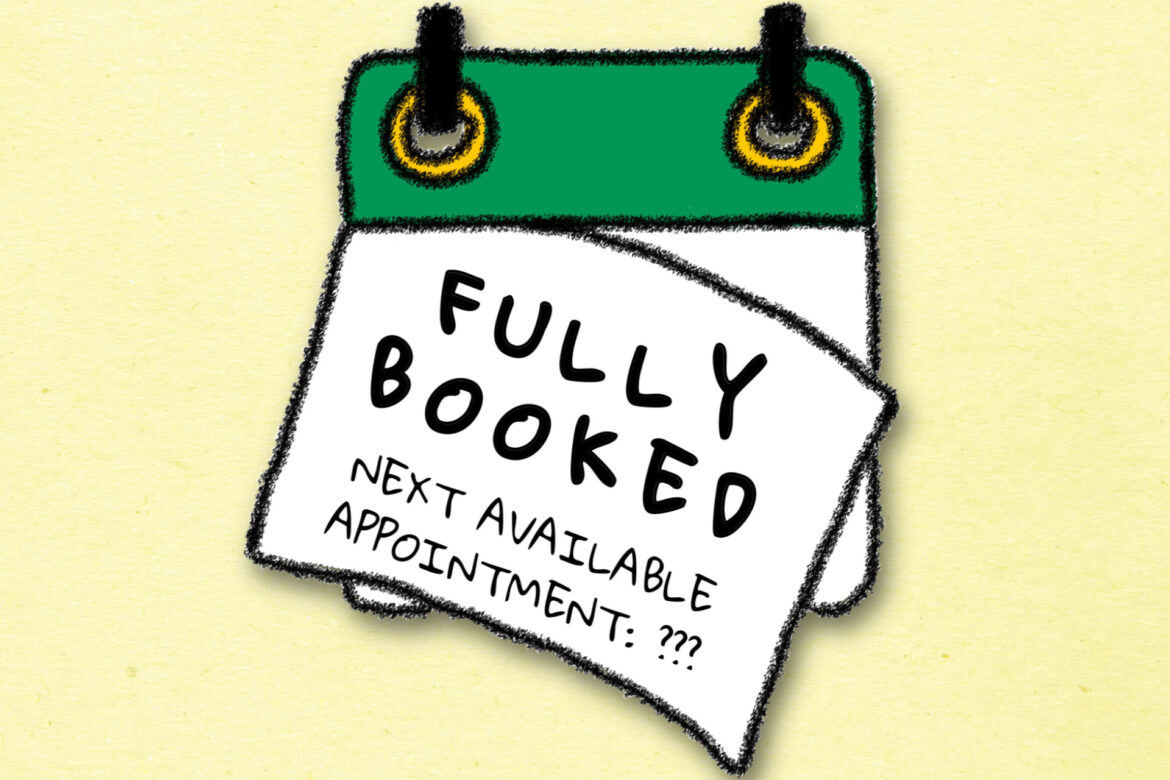Disclaimer: The following article is the opinion of a student writer at Montclair State University. This article does not necessarily reflect the views of The Montclarion or its staff.
Counseling and Psychological Services (CAPS) at Montclair State University are one of the many hypothetically brilliant offerings for students struggling with their mental health. Yet, because of the evergreen issue of the ever-growing student body, it struggles to scale alongside the needs such a large pool of students with varying mental health crises.
Personally, I have had two major experiences with CAPS, in the spring and fall semesters of 2023. I have nothing bad to say about the treatment I got in those experiences; however, I also have nothing good to say, because the process was ultimately so slow that I never actually received any sort of counseling or psychological services.
To offer context as to why I sought out CAPS in the first place, in April of 2023, I very suddenly and shockingly lost my mother, with whom I was very close.
Overnight, my life was irreparably changed and the weight of the world was on my shoulders. That day, I did not just lose my mother, a whole host of questions hung over my head about how the rest of my family was supposed to pick up the pieces, all while I still had finals I was dead-set on completing.
As soon as I was back on campus after her passing, I sought out CAPS. I scheduled an appointment over the phone for an intake, which I completed one week later. I was then told they would pair me with a counselor within the next week.
By the time they had, it was time for me to move out of my Blanton Hall triple (shoutout to sports editor Ryan Nussbaum and local village idiot John Bruno, my amazing roommates who had my back at my lowest) and back home to southern New Jersey for the summer, where I sought a local therapist instead of CAPS’ delayed offering.
Flash forward to October of 2023, where I had just gotten out of a relationship that took a toll on my self-esteem and my mother was still dead. At the end of the prior semester, I was held together by pure adrenaline and shock that had long since worn off and was replaced by an unimaginable, all-consuming grief.
The local therapist I sought out over the course of the summer had not panned out. And so I reached out to CAPS again, hoping to find anything at all to help me keep my head above water. When I got onto the phone to schedule an appointment, I was told that not only would I have to complete another intake appointment, but they would not be able to take me for at least two weeks.
And the slot they had was on a day that I was busy, which leapfrogged my time until an intake appointment to three weeks.
Leaving me roughly four weeks until I could actually get an appointment with a counselor that, ultimately, might not pan out, much like my summer experience.
So, in the time that it would have taken me to get an intake, my then-new roommate, our lovely managing editor Avery Nixon, helped set me up with a therapist, with whom I managed to complete three sessions within the time it would have taken me to get one through the CAPS.
I must state that this experience is only mine, and that I do not hold it against the hardworking individuals at CAPS, many of whom were incredibly understanding and apologetic throughout the process. However, as we dive into #FOCUS: Mental Health, I cannot ignore that this was my experience. I was struggling, experiencing unimaginable grief and fear, and the help I needed was so close but so far away, simply due to the volume of students who also needed help.



